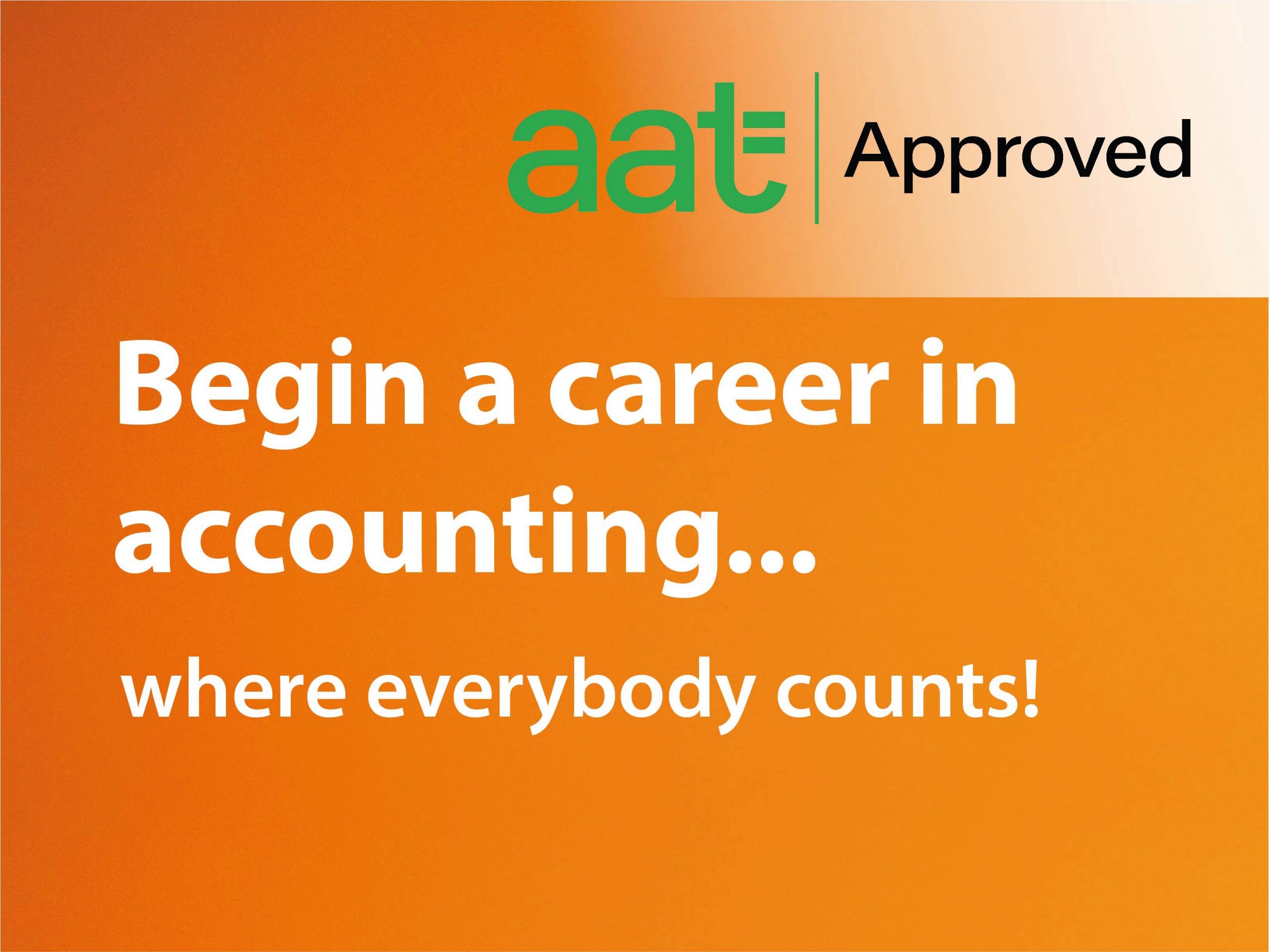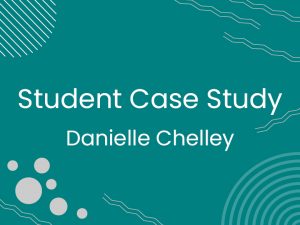AAT Level 4 Diploma in Professional Accounting
Subject: Accounting & Bookkeeping
Awarded by the Association of Accounting Technicians (AAT), the AAT Level 4 Diploma in Professional Accounting is the advanced and final level of the internationally recognised AAT qualification.
This qualification is ideal for your team member to learn how to accomplish a range of higher level accounting tasks including drafting financial statements, managing budgets, evaluating financial performance and preparing personal and business tax returns.
Should the ultimate goal be to study towards professional accountancy qualifications, generous study exemptions from UK chartered, certified and management accountancy bodies will also apply.
Key Facts
- Attendance: Half-day/evening classes or blended learning.
- Duration: 18 months.
- Next start dates: Enrolling now, please contact us for details.
- Location: Huntingdon or blended learning.
Course delivery details:
| Location | Attendance Options | Day | Time |
| Huntingdon | Evening
Half day release |
Mondays
Tuesdays |
5.30pm-8.30pm
9.15am-1pm |
| Blended Learning | No college attendance required, start at any time | n/a | n/a |
Entry Requirements
Enrolment on this qualification requires competency in complex double-entry bookkeeping and the AAT Level 3 Diploma in Accounting to have been previously completed.
Course Content
The Level 4 Diploma in Professional Accounting qualification offers a combination of classroom or online lessons and regular tutorial support (390 guided learning hours in total). In addition to your classroom or online lessons, students will be expected to study for an additional eight hours per week.
The following three mandatory units will be studied:
Drafting and Interpreting Financial Statements
This unit provides students with the skills and knowledge for drafting the financial statements of single limited companies and consolidated financial statements for groups of companies. Students will have a proficient level of knowledge and understanding of international accounting standards, which will then be applied when drafting the financial statements. Students will also have a sound appreciation of the regulatory and conceptual frameworks that underpin the preparation of limited company financial statements.
- The external reporting environment for limited companies and groups which need to publish accounts.
- Principles of consolidated accounts, and analysis and interpretation of financial statements.
- Preparing a range of financial statements and identifying an organisation’s financial position.
Applied Management Accounting
This unit focusses on the three fundamental areas of management accounting: planning, control and decision making. This unit will allow students to understand how the budgetary process is undertaken. Students will be able to construct budgets and then identify and report both on areas of success and on areas that should be of concern to key stakeholders. Students will also gain the skills required to critically evaluate organisational performance. Students will also gain an appreciation of the methods used to deal with the issues surrounding both short-term and long-term decision making.
- How and why budgets are prepared, helping you prepare revenue forecasts and a range of budgets for different circumstances.
- Understanding budgetary procedure to aid organisational planning and control.
- Preparing budgets, analysing variances and making recommendations for improving organisational performance.
- Managing and measuring financial performance; the range of techniques for analysing information on expenditure and making judgements to support decision making, planning and control by managers.
- Collecting and analysing information, monitoring performance and presenting reports to management.
Internal Accounting Systems and Controls
The unit teaches student to consider the role and responsibilities of the accounting function, including the needs of key stakeholders who use financial reports to make decisions. Students will review accounting systems to identify weaknesses and will make recommendations to mitigate identified weaknesses in future operations. Students will apply several analytical methods to evaluate the implications of any changes to operating procedures. Technology is changing the way that accountancy information is processed, and this unit requires knowledge of the fundamental principles of data analytics and artificial intelligence (AI), which may be used as an alternative way to gather and analyse information. Cloud accounting is changing the way accountants work and visualisation, including dashboards, is increasingly used to present information in a way that is easier for stakeholders to understand. Data security and breaches are regularly reported in the press, and therefore it is imperative that students are aware of the importance of keeping all data secure and consider the confidential nature of the data that they will be processing as part of their everyday role.
- Identifying the role of internal control within an organisation and recognising different approaches to making informed recommendations on how to implement or improve systems.
- Communicating this to management and identifying the impact that changes would have on the system and its users.
Optional Units
The following optional units will then be selected:
Personal Tax
This unit provides students with the fundamental knowledge of the three most common taxes that affect taxpayers in the United Kingdom (UK): income tax, capital gains tax and inheritance tax. With this knowledge, students will be equipped to prepare not only the computational aspects where appropriate of these taxes, but also appreciate how taxpayers can legally minimise their overall taxation liability. Students will also study capital gains tax and inheritance tax. The fundamental principles of these taxes will be covered so that students can appreciate how they may affect UK taxpayers.
- How Income Tax and Capital Gains Tax is applied to income.
- Calculating Income Tax liabilities and income from all sources.
- Applying relevant allowances, deductions and reliefs to prepare accurate Income Tax computations.
Business Tax
This unit introduces students to UK taxation relevant to businesses. Students will understand how to compute business taxes for sole traders, partnerships and limited companies. They will also be able to identify tax planning opportunities while understanding the importance of maintaining ethical standards. Students will gain the skills required to apply the tax treatment of capital expenditure and the adjustment of accounting profits for tax purposes. Students will allocate profits to tax years for ongoing businesses as well as in opening and closing years. In addition, students will allocate profits between partners in a partnership and will calculate National Insurance (NI) contributions for the self-employed, advising clients on the tax implications of making losses.
- Preparing tax returns for sole traders, partnerships and incorporated businesses.
- Recognise trading profits, make adjustments and apply current relevant legislation.
Assessment
Computer based exams or projects will be undertaken. As we are an AAT accredited exam centre these exams can be taken at College without the need to travel to an external exam centre.
Course Fees
Course fees can either be paid in full before the beginning of the course, on an annual basis, or via our ‘Pay As You Learn’ monthly payment scheme.
If your employee has not achieved your qualification by the planned end date continued support and course access is available by paying monthly direct debit payments until certification is achieved.
| Full Fee | Pay As You Learn |
| £2,550 | £142 per month |
Awarding Body Fees*
Payment for AAT membership, exam fees (approximately £564*) and textbooks (approximately £33 per unit) will also be required.
* Awarding Body Fees are payable by all students or employers and recharged at cost and may be subject to change.
These are current figures and may be subject to change. The differences in course fees reflect the level of funding that is available as a result of government policies and priorities. These may be as a result of age, employment status, previous education achievements, or location for example, and are outside the control of CAW Business School.
What Next?
Following completion of the AAT Level 4 qualification your employee will be able to apply to become an AAT full member and use the letters MAAT after their name.
Should you wish to encourage your team members to progress further to become a chartered accountant all the UK chartered and certified accountancy bodies recognised the AAT Accounting qualification will therefore offer exemptions from certain modules.



